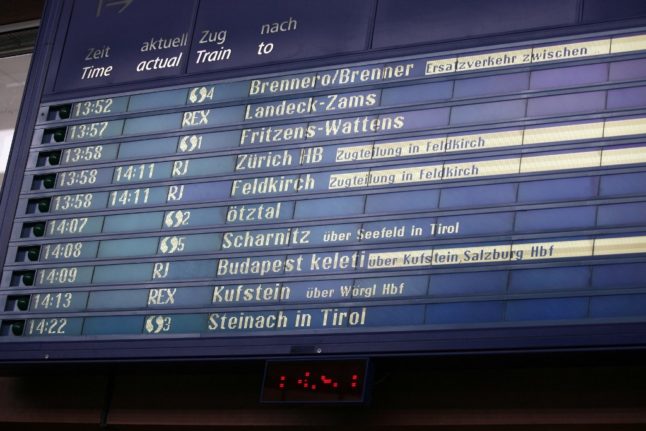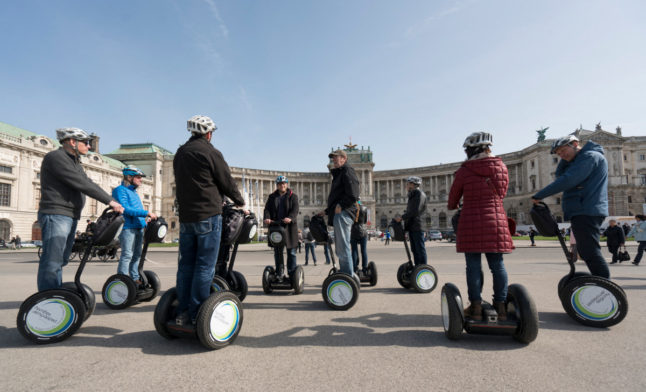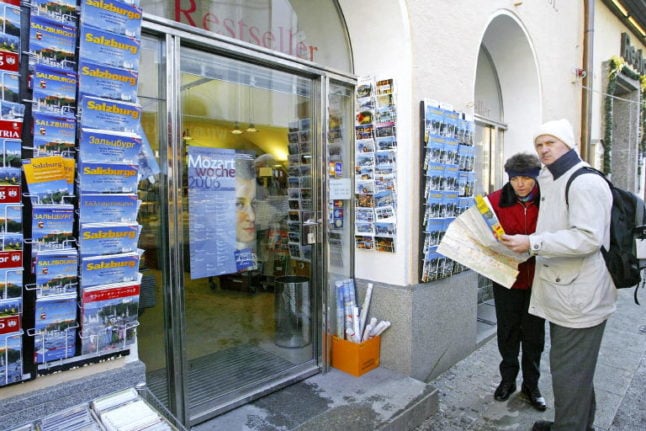Austrian railway workers will hold a one-day strike on Monday after another round of negotiations between unions and railway representatives failed.
The fifth round of negotiations over pay rises for 50,000 employees from 65 different railway operators, including the main national operator ÖBB, had failed to come to a resolution.
Vida, the trade union that represents the workers, has asked for a wage increase of €400 – an average increase of around 12 percent.
In response, Austria’s Chamber of Commerce offered an increase of a 8 percent.
With walkouts set to go ahead, there will be no regional, long-distance or night trains on Monday.
“After more than twelve hours of intensive talks, the [two sides] unfortunately did not manage to come to an agreement,” the ÖBB said in a statement.
Cross-border traffic and night travel could be affected, and the ÖBB also warned of “individual train cancellations” on Sunday evening and even on Tuesday.
Andreas Matthä, CEO of ÖBB, said in a statement: “I cannot understand this strike at all. With an offer of 8.44 percent, the ÖBB has made the highest offer of any sector.”
“This is clearly a malicious strike on the part of the union,” he added.
Vida union negotiator Gerhard Tauchner said that they “are fighting for a sustainable cost of living adjustment… which will give relief to those with lower and middle incomes in particular in the face of skyrocketing prices.”
Austria’s year-on-year inflation rate hit 11 percent in October.




 Please whitelist us to continue reading.
Please whitelist us to continue reading.
Member comments